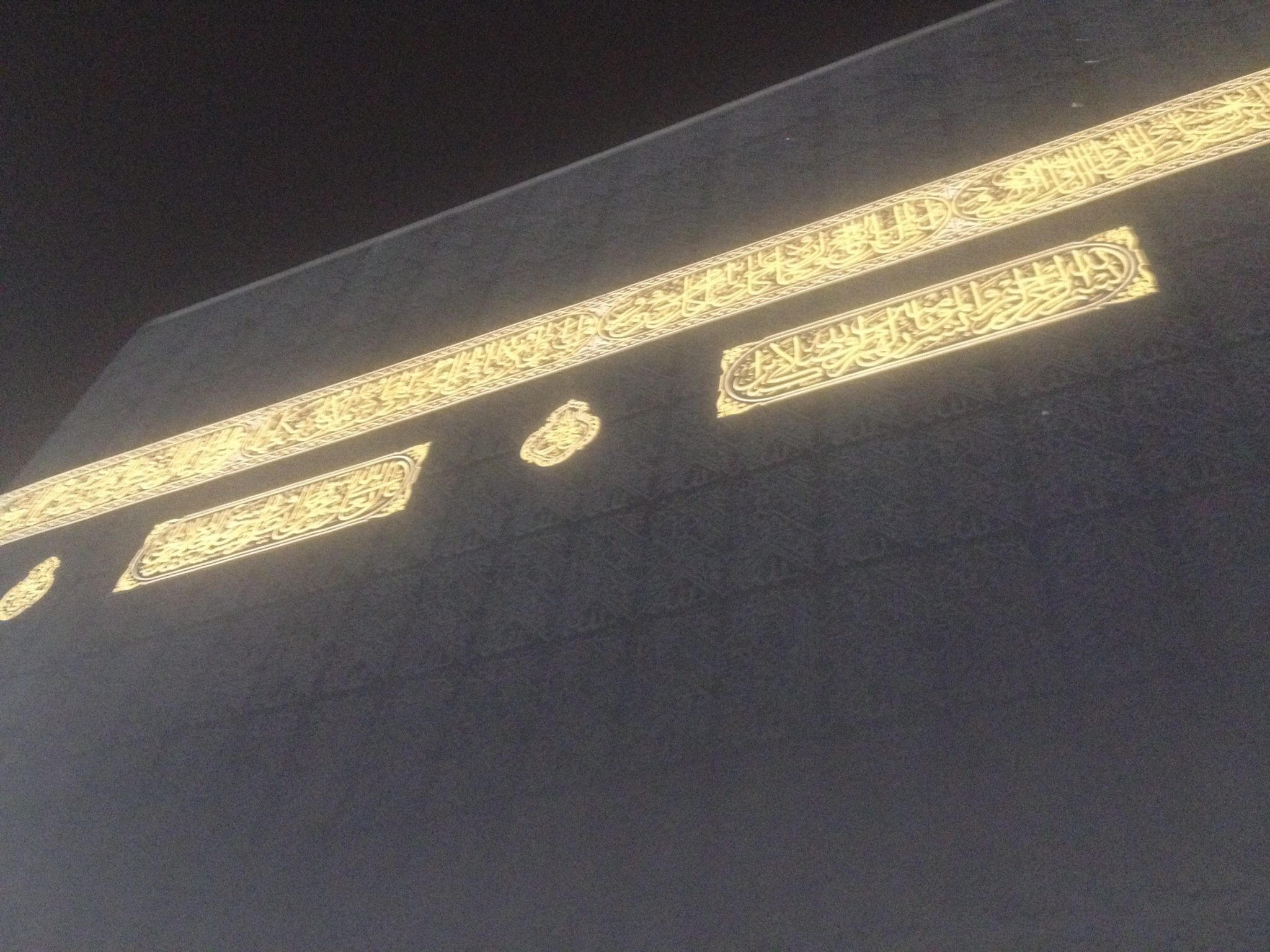Shahāda (2): Muḥammad is the Messenger of Allah

Getting your Trinity Audio player ready... |
Executive Summary
Part 2 is the translation of chapter 7 from Part 1 of Kitāb al-Tawḥeed by Professor Muḥammad bin Abdallah al-Massari. The latter half of the testimony of faith, al-Shahāda, is outlined.
This part of the proclamation relates to Muḥammad (peace and blessings be upon him) being the conveyer of Allah’s truth and words, in a manner that is completely free of anything missing or added, as well as any form of error, lie or forgetfulness. He (peace be upon him) is the best leader, the exemplar, the ideal to be followed. Neither does he speak of his own desire nor does he utter except that which is true.
Indeed, Allah has set out some definitive parameters regarding obedience to the Prophet Muḥammad (peace be upon him), which are outlined also.
The meaning of – Muḥammad is the Messenger of Allah
The latter half of the proclamation relates to Muḥammad, peace and blessings be upon him, being the conveyer of Allah’s truth and words, in a manner that is completely free of anything missing or added, as well as any form of error, lie or forgetfulness. The Prophet peace and blessings be upon him does not forget, but rather he is made to forget, so as to set for his nation Prophetic traditions pertaining to forgetfulness. As Allah the Almighty has lucidly explained:
سَنُقْرِئُكَ فَلا تَنْسَى إِلَّا مَا شَاءَ اللَّهُ إِنَّهُ يَعْلَمُ الْجَهْرَ وَمَا يَخْفَى
[Prophet], We shall teach you [the Qur’ān] and you will not forget, unless Allah wishes; He knows both what is open and what is hidden.[1]
He is the best leader, the exemplar, the ideal to be followed. Neither does he speak of his own desire nor does he utter except that which is true. He never says anything except out of the knowledge that Allah has bestowed upon him or wishes to proceed ahead of his Lord. If he is asked about something new, he remains silent and waits until the divine ruling is revealed to him. He is simply a conveyer of Allah’s truth and words, so he does not practice ijtihād (independent legal-juristic reasoning). He neither needs it nor did he practice it, for Allah has elevated him high above the need for that. But Allah gave honour and mercy to anyone of his nation who practices independent legal reasoning – whether or not the practice results in a sound or an erroneous judgement. He who reaches a sound judgment receives a double reward or more, whereas he who reaches an erroneous judgment receives a single reward for his effort.
To put the matter more expressly, we would say about him, peace and blessings be upon him, that he has no need or requirement to resort to ijtihād. There is no requirement for him to exercise substantive effort in undertaking the process that subsequent scholars from his nation are required to do in order to reach or discern a particular legal judgement. He has no need or requirement to seek to deduce legal rulings from the detailed evidences. Therefore the meaning of ‘Muḥammad is the Messenger of Allah’ is that none has the right to be followed except the Messenger of Allah peace and blessings be upon him. Others beside the Messenger of Allah peace and blessings be upon him are not to be followed or obeyed except by virtue of an established evidential command. He who follows something without such evidence will be following falsehood. Even the following in permissible matters requires a proof, for permissibility is considered a ‘legal ruling’.
The following in permissible or ‘optional rulings’ is the same as the following in other legal rulings including the obligatory, the recommended, the undesirable, and the prohibited. This is similar to the following in so-called positive rulings including: cause, condition, allowance, easement, restriction, validity, invalidity and incorrectness. The legal ruling of such optional deeds performed by human beings cannot be identified except by means of a legal proof – no matter what the deed is. As for the deeds people perform by their own free will and determination during the pre-Islamic period and before the establishment of any legal proofs or authority, they are neither mandatory nor permissible. Permissibility is a legal ruling established by way of revelation.
Allah has set out some definitive parameters regarding obedience to the commissioned Prophets and Messengers, including the Prophet Muḥammad peace and blessings be upon him as per the following verses:
فَلاَ وَرَبِّكَ لاَ يُؤْمِنُونَ حَتَّىَ يُحَكِّمُوكَ فِيمَا شَجَرَ بَيْنَهُمْ ثُمَّ لاَ يَجِدُواْ فِي أَنفُسِهِمْ حَرَجاً مِّمَّا قَضَيْتَ وَيُسَلِّمُواْ تَسْلِيماً
By your Lord, they will not be true believers until they let you decide between them in all matters of dispute, and find no resistance in their souls to your decisions, accepting them totally.[2]
وَمَا كَانَ لِمُؤْمِنٍ وَلَا مُؤْمِنَةٍ إِذَا قَضَى اللَّهُ وَرَسُولُهُ أَمْراً أَن يَكُونَ لَهُمُ الْخِيَرَةُ مِنْ أَمْرِهِمْ وَمَن يَعْصِ اللَّهَ وَرَسُولَهُ فَقَدْ ضَلَّ ضَلَالاً مُّبِيناً
When Allah and His Messenger have decided on a matter that concerns them, it is not fitting for any believing man or woman to claim freedom of choice in that matter: whoever disobeys Allah and His Messenger is far astray.[3]
مَّنْ يُطِعِ الرَّسُولَ فَقَدْ أَطَاعَ اللّهَ وَمَن تَوَلَّى فَمَا أَرْسَلْنَاكَ عَلَيْهِمْ حَفِيظاً
Whoever obeys the Messenger obeys Allah. If some pay no heed, We have not sent you to be their keeper.[4]
وَمَا أَرْسَلْنَا مِن رَّسُولٍ إِلاَّ لِيُطَاعَ بِإِذْنِ اللّهِ وَلَوْ أَنَّهُمْ إِذ ظَّلَمُواْ أَنفُسَهُمْ جَآؤُوكَ فَاسْتَغْفَرُواْ اللّهَ وَاسْتَغْفَرَ لَهُمُ الرَّسُولُ لَوَجَدُواْ اللّهَ تَوَّاباً رَّحِيماً
All the Messengers We sent were meant to be obeyed, by Allah’s leave. If only [the hypocrites] had come to you [Prophet] when they wronged themselves, and begged Allah’s forgiveness, and the Messenger had asked forgiveness for them, they would have found that Allah accepts repentance and is most merciful.[5]
إِلَّا بَلَاغاً مِّنَ اللَّهِ وَرِسَالَاتِهِ: وَمَن يَعْصِ اللَّهَ وَرَسُولَهُ فَإِنَّ لَهُ نَارَ جَهَنَّمَ خَالِدِينَ فِيهَا أَبَداً
I only deliver [what I receive] from Allah – only His messages.’ Whoever disobeys Allah and His Messenger will have Hell’s Fire as his permanent home.[6]
تِلْكَ حُدُودُ اللَّهِ وَمَن يُطِعِ اللَّهَ وَرَسُولَهُ يُدْخِلْهُ جَنَّاتٍ تَجْرِي مِن تَحْتِهَا الْأَنْهَارُ خَالِدِينَ فِيهَا وَذَٰلِكَ الْفَوْزُ الْعَظِيمُ، وَمَن يَعْصِ اللَّهَ وَرَسُولَهُ وَيَتَعَدَّ حُدُودَهُ يُدْخِلْهُ نَارًا خَالِدًا فِيهَا وَلَهُ عَذَابٌ مُّهِينٌ
These are the bounds set by Allah. Allah will admit those who obey Him and His Messenger to Gardens graced with flowing streams, and there they will stay – that is the supreme triumph! But those who disobey Allah and His Messenger and overstep His limits will be consigned by Allah to the Fire, and there they will stay – a humiliating torment awaits them![7]
Endnotes
[1] Qur’ān 87: 6/7
[2] Qur’ān 4: 65
[3] Qur’ān 33: 36
[4] Qur’ān 4: 80
[5] Qur’ān 4: 64
[6] Qur’ān 72: 23
[7] Qur’ān 4: 13/14




